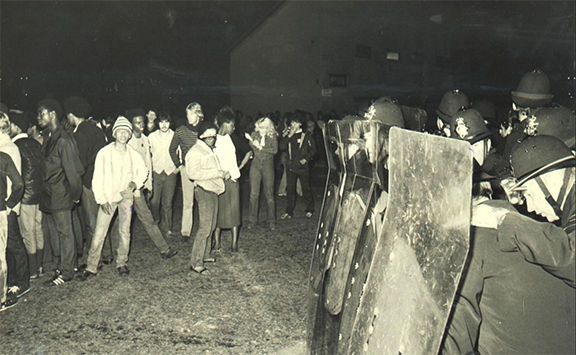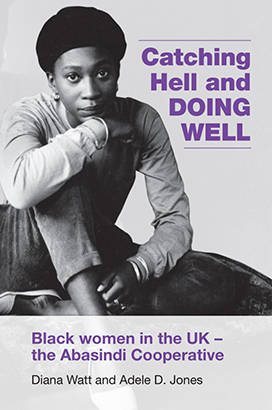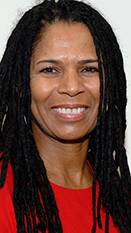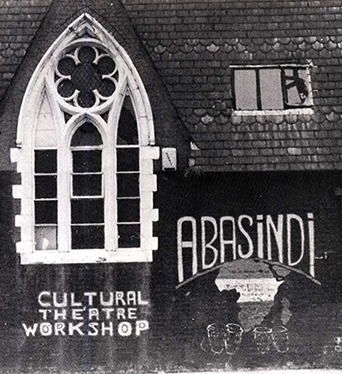Black women’s Abasindi Co-operative in troubled 1980s Moss Side

Tue, 22 Dec 2015 09:49:00 GMT
The Abasindi Co-operative’s work to alleviate the problems facing the Manchester suburb of Moss Side is recognised by former member, now Huddersfield professor, Adele Jones
 CONFRONTED by a raft of social, political, educational and economic challenges, a group of black women in late 1970s Manchester decided to meet them head on.
CONFRONTED by a raft of social, political, educational and economic challenges, a group of black women in late 1970s Manchester decided to meet them head on.
 They formed a collective that made a huge impact in the community. An early member of the Abasindi Co-operative – based in Moss Side – was Adele Jones (pictured), a young social worker whose career would take her into the academic world for research in fields such as child protection that has had a global reach.
They formed a collective that made a huge impact in the community. An early member of the Abasindi Co-operative – based in Moss Side – was Adele Jones (pictured), a young social worker whose career would take her into the academic world for research in fields such as child protection that has had a global reach.
Now, as Professor Adele Jones of the University of Huddersfield, she is co-author of a new book that tells the story of Abasindi. Titled Catching Hell and Doing Well – Black Women in the UK: Abasindi Co-operative (IOE Press), it has been launched at an event in Manchester that drew an attendance of hundreds, including many former members of a group that made a point of self-reliance. The co-operative ran a wide range of educational, cultural and political activities during the 1980s, but never sought or accepted public funding.
“We covered serious issues and were a very thoughtful group. But Abasindi was enjoyable on so many levels. We were all very strong personalities – feisty and opinionated!” said Professor Jones.
In 1981, Moss Side was the scene of civil disturbances, but tension had been brewing for some time, said Adele Jones, who was living in the district at this period. Abasindi tackled educational under-achievment in an area of high youth unemployment by running Saturday classes in subjects such as science, maths, English and black history.
 It had a strong focus on women’s education and issues, but it drew support from men. Political campaigning covered topics such as immigration laws.
It had a strong focus on women’s education and issues, but it drew support from men. Political campaigning covered topics such as immigration laws.
The collective has never formally been wound up, but it lost momentum in the 1990s, partly because of the early death of many of the founders. “A lot of people didn’t have the same sense of political engagement as we had because their lives are different,” said Professor Jones. “They are fighting for different things.”
 Catching Hell and Doing Well was co-authored with Abasindi founder member Diana Watt (pictured) – also an academic – and with Adele Jones she interviewed a large number of ex-members of the collective. The authors also examined archival material, in order to compile an authoritative history of a project that is still relevant, in the view of Professor Jones.
Catching Hell and Doing Well was co-authored with Abasindi founder member Diana Watt (pictured) – also an academic – and with Adele Jones she interviewed a large number of ex-members of the collective. The authors also examined archival material, in order to compile an authoritative history of a project that is still relevant, in the view of Professor Jones.
“Abasindi was hugely influential and a case study in how such a venture can work in terms of improving communities. But although, in the book, we are looking through the lens of Abasindi we have also examined some contemporary issues, such as schools, domestic violence and immigration policy,” said Professor Jones.
“So we are writing about black women’s lives contemporaneously as well as historically.”







